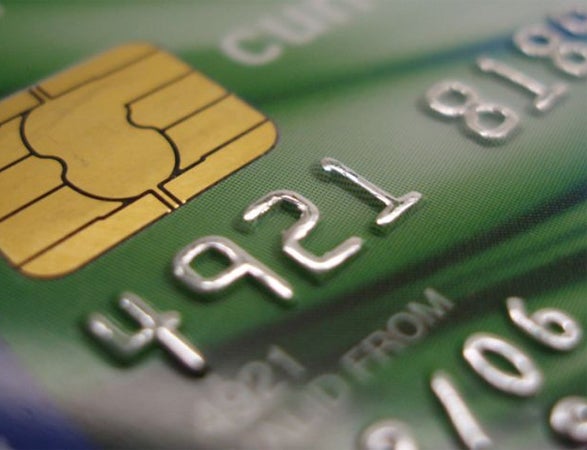
As if to prove Parkinson’s light-hearted law, “Work expands so as to fill the time available for its completion”, exams take over and over and over until everything, including money, gets forgotten.
Food shopping swells to fuel (read: caffeinate) your studies, with costs justified as educational necessity. But exams finish, the self-imposed club exile ends and parties begin again; shot by shot, expenses blow up, and by Easter, you’re considering ebaying your chocolate eggs for the train fare back to uni. Organise a budget though, and you’ll survive the term relatively panic free - for finances, at least.
Start one up
Budgeting , according to most money pages, is an impossibility for students; you’ll need handfuls of bank accounts and piles of invoices and outvoices and all sorts. Remove such nonsense from your mind; a successful budget simply ensures you spend less than comes in. The foremost difficulty arises in accurately realising your weekly spend and sticking to your limit. Fortunately, there are ways around this.
Establish how much you have to spend with this swift sum: take your income, be it from your loan or a part-time job, and divide by the number of weeks you need the money to last. This weekly figure is your absolute maximum spend and you should aim for your spend to come in as much under as possible. Easy.
People blow budgets because they merrily spend according to plans which don’t sufficiently account for all outgoings or have overestimated income. A budget can either be helpful or inaccurate but never both:
- First, be certain of what money you have. Never rely on presumed income; that gig may not happen, the job you’re hoping for could fall through, relatives may not be so generous on your birthday this year.
- Then focus on the outgoings: even if you can’t see the payment, you’re still spending. Mobile phone bill? Outstanding bank charges? Utility bills? Anything leaving your account of its own accord is easy to forget – don’t.
- Budget for everything, not the essentials. The idea of a ‘typical week’ is myth. Make allowances for unexpected costs because the times your bank account really suffers are the nights your reckless streak gets the better of you, or the month everybody keeps forgetting to turn the heating off. A successful budget makes room for unplanned expenditure and leaves an extra fiver or tenner aside each week in case of emergency.
- For your budget to succeed, it must be realistic. To be realistic, it needs specifics. Morph into Miss Marple and get pernickety about everything. For instance, don’t budget your food costs at £20 because your big food shop every week comes in at £19.95; how much does it cost getting to the supermarket? Do you pop out for extra bread or milk or vodka during the week? The little additions are usually liable for overspending. It’s the same with travel costs – if you drive, don’t put aside a rough figure on ‘the car’ – you’re paying road tax, the MoT, tyre changes and so on, so budget for each aspect individually so you have a more accurate idea of where your cash is going.
Stick with it
The good intentions of a budget tend to be bored into extinction. Recognise that budgeting is dull and get on with it – it’s work, not a ‘fun money-saving tip’ (those don’t exist). Working a budget successfully isn’t difficult but it does require a healthy dollop of willpower and constant reminders, so it doesn’t become another “Well, I meant to...”
Once the week-to-week spend has been precisely tackled, take out the full amount for the week in cash. Now, each time your wallet opens, it’ll serve as a reminder of what you’ve spent and how much is left; seeing the notes slowly dwindle to nothing is a real turn-off for impulse buys. This works best if you split the money and only carry a little as and when it’s necessary; if you’re headed to the supermarket, only take the £20 budgeted. Do the same for a night out – and always leave the card at home.
Have something to save for
An ideal budget does more than stops you going broke. Often, it isn’t feasible to save but if you do end up with a little over at the end of the week, never ever roll it into next week’s budget - this will only encourage you to spend it. Put it aside, or back into your bank account, and stick to the plan you've already worked out. Then, should an unexpected expense arise, you’ll have something to fall back on.
A pain? Yes. But better than giving up eating for a week because your laptop turned suicidal.
Not working? Check the numbers
If the budget isn’t working, then your figures are wrong. Strike up a habit of keeping receipts and once you’ve exhausted your usual procrastination haunts, check them. Get a realistic idea of your real spending habits and begin to weed out the unnecessary spending, typically coffees, clothes and cigarettes (though vices beginning with other letters are also available). Cut them down.
Finally, obviously, be strict with yourself. Overspend one week and the temptation is there to do it again – especially as the consequences aren’t immediate. It’s just come May, if you do get lax, you’ll spend the penniless days cursing yourself.
David Ellis is the editor of studentmoneysaver.co.uk
Subscribe to Independent Premium to bookmark this article
Want to bookmark your favourite articles and stories to read or reference later? Start your Independent Premium subscription today.

Join our commenting forum
Join thought-provoking conversations, follow other Independent readers and see their replies